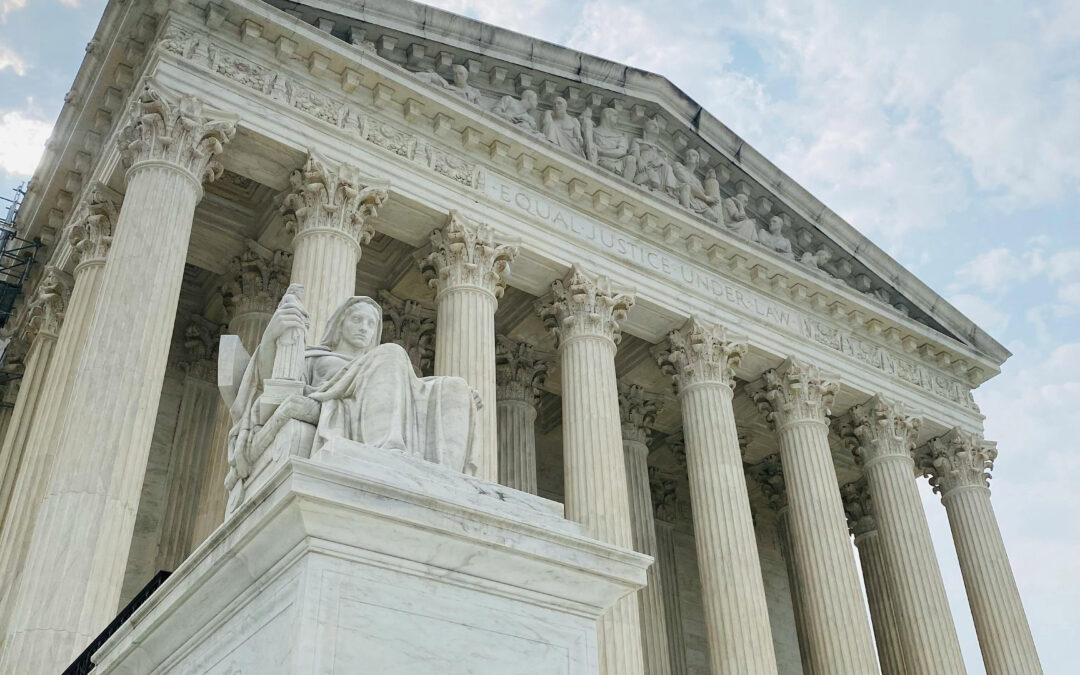WASHINGTON—On Monday, the Supreme Court issued a decision in Donald J. Trump v. United States. The ruling gives a president immunity from prosecution for crimes committed through official acts as president. For some acts–for powers the Constitution gives only to the president–the immunity is to be “absolute.” For other official acts, the ruling gives the president a rebuttable presumption of immunity from criminal liability. To hold a president accountable for such crimes, the prosecutor would have to show that the prosecution would not intrude on the authority and functions of the Executive Branch. In shielding a president from criminal liability for crimes committed while in office, the ruling undermines the very pillars of our democracy, which are built upon the rule of law.
Even so, the Court’s decision also recognizes that the president is not immune from criminal liability for unofficial acts, and it does nothing to change the fact that a president is not immune from liability in civil court for the harm caused to others by unofficial acts. The ability of our courts to hold individuals accountable–through both criminal and civil liability for the unlawful harms they cause to others–is critical to the preservation of individual freedom and respect for civil rights.
In 2021, the Lawyers’ Committee for Civil Rights Under Law filed a federal civil rights lawsuit on behalf of U.S. Capitol Police officers who defended the Capitol on January 6. That case, Smith v. Trump, is the largest federal civil suit seeking accountability for the January 6 attack. This case, which is currently being litigated in a federal district court in Washington, D.C., names former President Donald J. Trump, his campaign, the Proud Boys, the Oath Keepers, and individual members of these groups as defendants, claiming they are responsible for the January 6 attack. Regardless of the ultimate result in the criminal case United States v. Trump, the civil litigation led by the Lawyers’ Committee will continue to seek justice and accountability for those harmed by the attack.
The following is a statement from Damon Hewitt, president and executive director of the Lawyers’ Committee for Civil Rights Under Law:
“Today’s ruling makes it harder for prosecutors to hold the former president liable for his alleged criminal acts. That makes our federal civil rights lawsuit even more important as potentially one of the few means left to hold him accountable. Our responsibility as a civil society is to seek fairness and justice, regardless of rank. That is even more important when forces conspire and incite violence to ignore the votes and voices of millions of American people—especially in an election when record numbers of Black voters and other voters of color cast their ballots.
The Supreme Court’s decision today will not stop accountability. We will not let today’s decision stop justice. And you can be certain that it will not weaken our resolve to hold the former president and all of the alleged perpetrators and co-conspirators of the January 6 insurrection accountable.
We remain committed to our mission and will continue to pursue justice relentlessly.”
###
About the Lawyers’ Committee for Civil Rights Under Law–The Lawyers’ Committee for Civil Rights Under Law is a nonpartisan, nonprofit organization, formed in 1963 at the request of President John F. Kennedy to mobilize the nation’s leading lawyers as agents for change in the Civil Rights Movement. Today, the Lawyers’ Committee uses legal advocacy to achieve racial justice, fighting inside and outside the courts to ensure that Black people and other people of color have the voice, opportunity, and power to make the promises of our democracy real.


